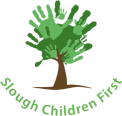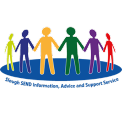Online safety

The internet is a great way for your child or young person to learn, keep in touch with friends or have fun by playing games or sharing images.
However, there are risks when using the internet which include:
- online grooming, exploitation or bullying by others online
- coming across inappropriate content (such as nude, violent, or distressing images or words)
- being asked to share personal information or nude images and videos (sexting).
Keep children safe online
If your child is starting to or already uses the internet, you may like to:
- talk to them about the possible risks of using the internet
- go online with them
- set rules about how they use the internet (such as how long and what sites they can go on)
- check Internet Matters - parental controls to help you set parental controls on devices and internet
- check the content your child is viewing is appropriate for their age
- make sure you know who your child is talking to online
- check your child is aware of the risk of sharing images online and how to use reporting tools on the sites they use.
Check online safety tips, advice and activities from NSPCC for parents and carers of children with SEND.
Online gaming
Children and young people love online gaming as it's a way of socialising with and testing their gaming skills against others.
If your child is playing games online, you may like to find out if:
- the game age is appropriate. Check the PEGI ratings, which tell you the age a game is appropriate for
- the games has a way of chatting to other players during a game.
Check:
Report concerns
If you are concerned a child has been groomed or harmed online you should contact the police on 999 immediately. An example of this may be if you believe a child is travelling to meet someone they have met online.
Children can also report any concerns to CEOP (the Child Exploitation and Online Protection Centre). Some children may prefer to do this if they are anxious about talking face to face with a parent or teacher.
Online bullying and abuse can also be reported to the police by calling 101.
If the young person is under 18 and their nude image or video has been shared online, they can ask for it to be removed from the internet on Childline - Report Remove.
Further advice
For further advice on how to ensure children and young people get the most out of the internet while staying safe check:





